Дитячі казки англійською мовою, що базуються на творах В.О. Суомлинського


(BASED ON THE WORKS OF V. SUKHOMLYNSKYI)
Kryvoruchko S.L.
English teacher
“Lyceum “Nadia”
THE CLAY CAT
When the cat was strong and young he caught many mice. The mice were afraid of him then. But in time he grew old and could not catch mice any more.
One day he lay on his back and did not move at all. A mouse saw him and thought he was dead. She ran to her friends and said, “The cat is dead! Let us dance and play.”
And all the mice began to dance and play. They were very happy, they danced and danced round the cat; and the cat did not move. Then one of the mice jumped on the cat’s head.
“Look at me! Come nearer, all of you! The bad cat is dead! Let us dance on his head!”
But suddenly the cat jumped up and caught the foolish mouse. The other mice ran away as quickly as they could. Mice! Never believe a cat! Don’t forget!
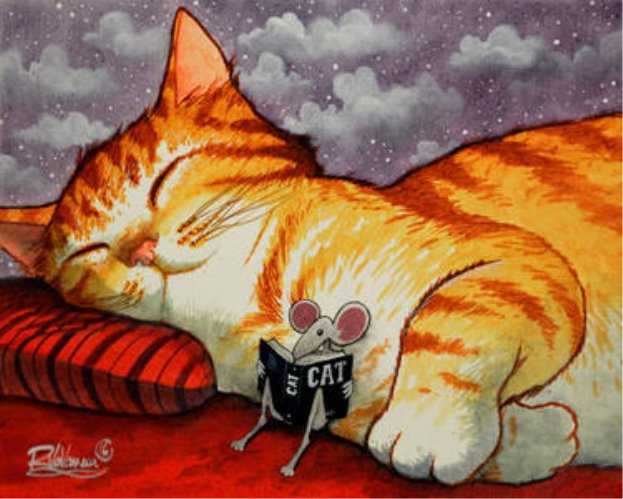
THE VAIN BIRDAND THE HEN
The marvelous bird thought she was very beautiful, perfect and wise. One day she was sitting on the tree and having a warm in her beak. At the foot of the tree was a hen. The hen saw the warm in the bird’s beak and wanted to have it. So she spoke to the bird.
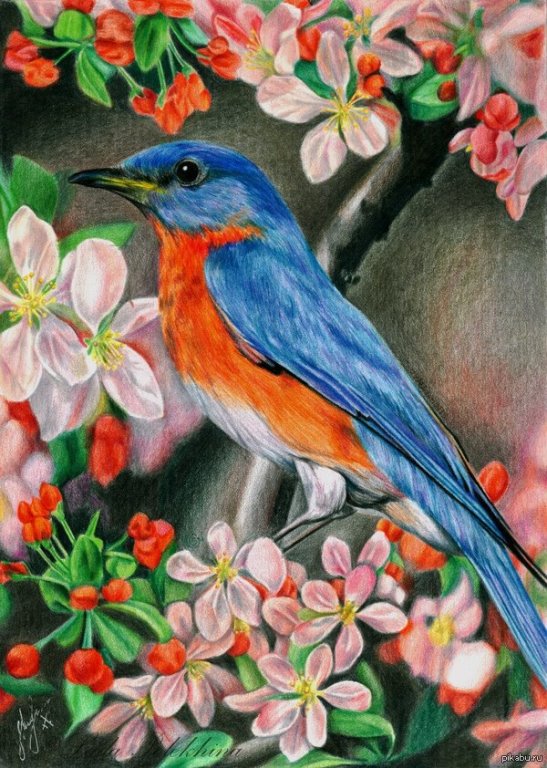
“I’m very glad to see you, my friend,” she said. “You look very beautiful today.” The bird sat quietly on the tree and said nothing, but she was very pleased. “You are so beautifuland brilliant that you could be our queen. Can you talk? I’m sure your voice is very beautiful ant sweet, too.”
The bird still said nothing, because she had the warm in her beak and did not want to drop it. The henwas still silent for a moment, then she said, “Oh, I see. You can’t talk. Well, we can’t make you our queen if you can’t talk.”
Now the vain bird wanted to show that she could talk, so she opened her mouth and said, “I can talk, silly hen!” The warm fell down on the ground. The hen ran to it and ate it up. The foolish bird looked sadly at the hen from the tree. And the hen laughed.
“My dear friend,” she said, “now I see that you have a voice, but there is something more important that you haven’t got—brains.”
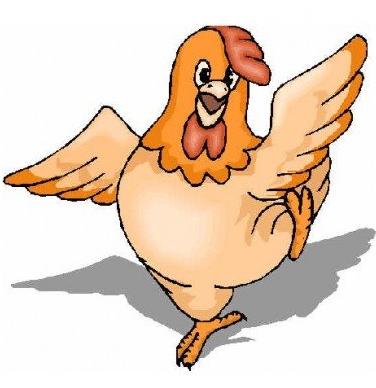
THE LITTLE PINE-TREE
A little pine-tree stands in the forest. It has no leaves, it only has needles. The little tree says, “I don’t like my needles. I want leaves. The other trees in the forest have nice leaves. I want to be like other trees.”
When night comes, the little pine-tree goes sleep. Then a fair comes and gives it nice green leaves. In the morning the little tree sees the green leaves and says “thank you” to the fairy.
In the afternoon a brown-with-white cow comes into the forest and eats the leaves off the little tree. Then the pine-tree says, “I don’t like green leaves, I want glass leaves.”
At night the fairy comes and gives the pine-tree glass leaves. In the morning when the little tree sees its glass leaves, it is very glad.
But that day the weather is bad and soon there are no glass leaves on the tree. There are only a lot of pieces of glass under it. Then the little tree says, “I don’t want to be other tree, I’m happy with my needles.”
Now we see pine-tree with needles, but not with leaves.

THE MAN AND THE APPLE-TREE
A poor man had a friend who was hard-working and famous for the wonderful apple-trees, which he grew. One day his friend gave the poor man a young tree and told him to take it home and plant it. The poor man was pleased with the gift, but when he got home he did not know where to plant it. He was afraid that if he planted a tree near the road, strangers could steal the fruit. If he planted the tree in his field, his neighbors would come at night and steal some of the apples. If he planted the tree near his house, his children would take the fruit. Finally, he plantedthe tree deep in the forest, where no one could see it. But naturally, without sunlight and good soil, the tree soon died. Later, the friend asked the poor man why he planted the tree in such a bad place.
“What’s the difference?”the poor man said angrily. “If I had planted the tree near the road strangers would have stolen the fruit. If I had planted the tree in my field, my neighbors would have come at night and stolen the apples. If I had planted it near my house, my own children would have taken the fruit.” “Yes,” said the friend. “But at least someone could have enjoyed the fruit. Now, by your foolish action, you have robbed everyone of the fruit and you have destroyed a good tree.”
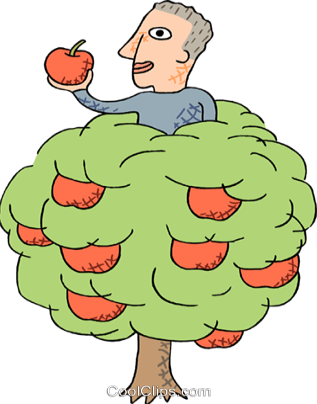
THE LITTLE FIR-TREE
In the garden there are some trees: a tall and graceful lime-tree, a beautiful and tender birch, a fruitful and branchy ap0ple-tree and a little fir-tree.
“I am verytall and graceful,” says the lime-tree.
“I am very beautiful and tender,” says the birch.
“You are tall, beautiful, graceful and tender, but you have no apples,” says the apple-tree.
The little fir-tree doesn’t say a word. Summer is over. It is cold. A strong wind is blowing. The leaves are falling down from the trees. All the trees have no leaves. But the fir-tree is green. It is green and nice inall seasons.
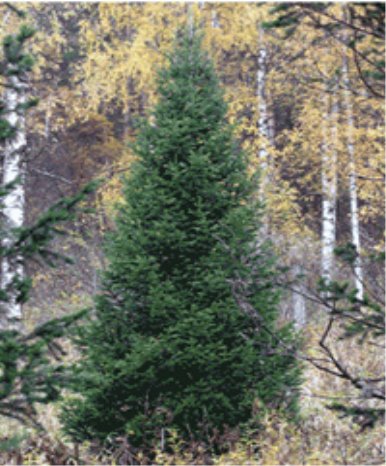
ROMAN AND THE SPIDER
Roman came to school on Tuesday. The first lesson was Math. Roman was not very good at Math. The pupils were working hard during the lesson. The teacher gave them the home task to do the Math test.
Coming back home Roman had his dinner and sat to do his Math test. Having done the three tasks he understood that he didn’t know how to do the last task because it was more difficult. He looked upward the shelf hanging above his desk. His eye was attracted by a spider. It was trying to fix the line on which it meant to stretch its web.
The spider made the attempt again and again but without any success. Roman counted that the spider tried to fix the line six times but with no result. Looking at it Roman understood that he was exactly in the same situation as the spider. 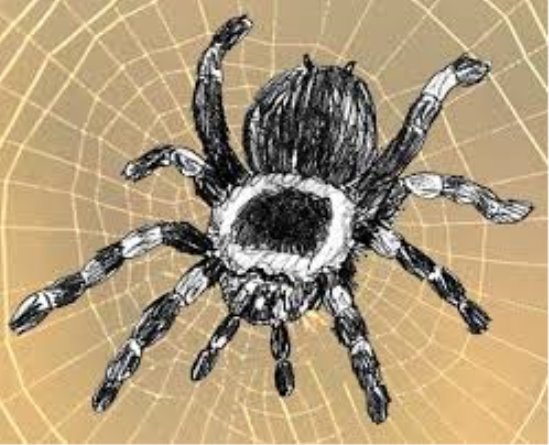
At last the spider succeeded in fixing its thread. Roman, seeing the success of the spider, resolved to try his own fortune. He thought hard over the task and did it. Roman was satisfied greatly and thanked the spider for an excellent example of persistency.
CONTENTS
- THE CLAY CAT
- THE VAIN BIRD
- THE PINE-TREE
- THE MAN AND THE APPLE-TREE
- THE LITTLE FIR-TREE
- ROMAN AND THE SPIDER

про публікацію авторської розробки
Додати розробку
